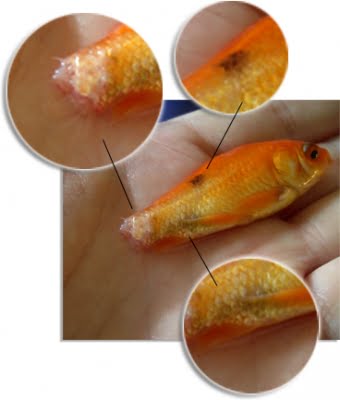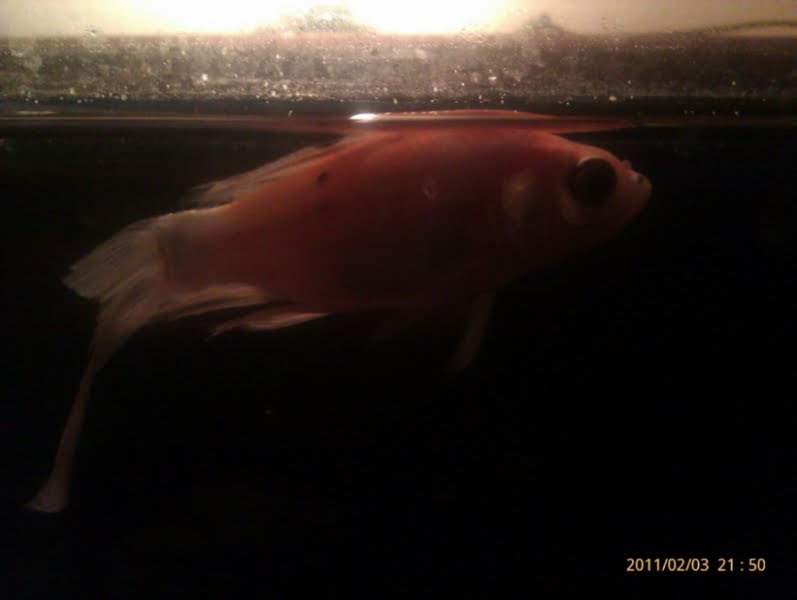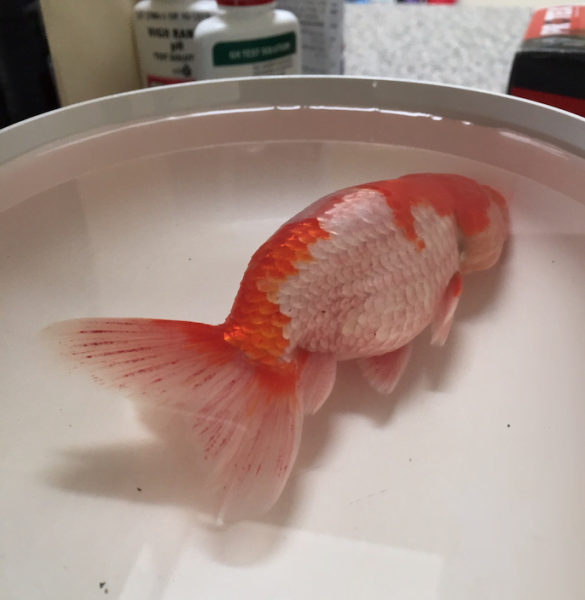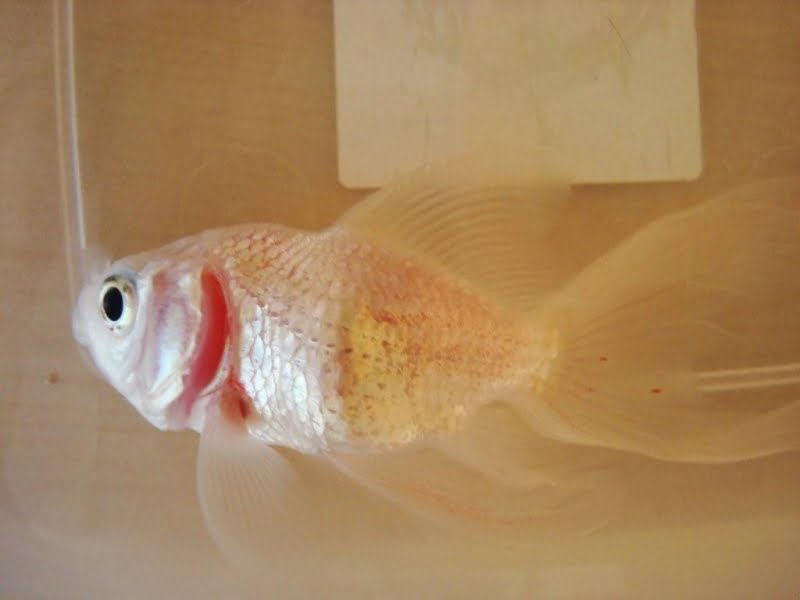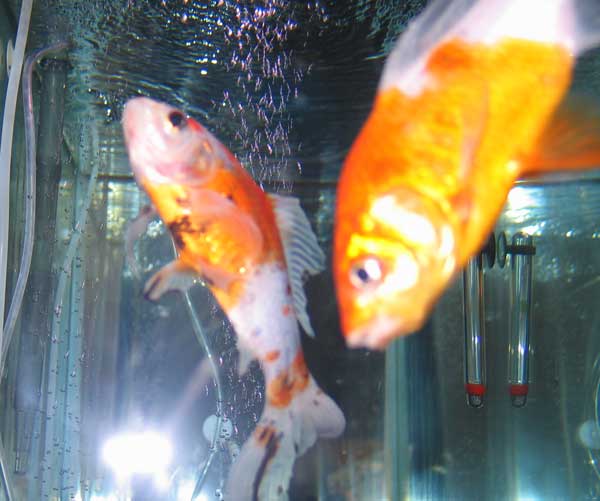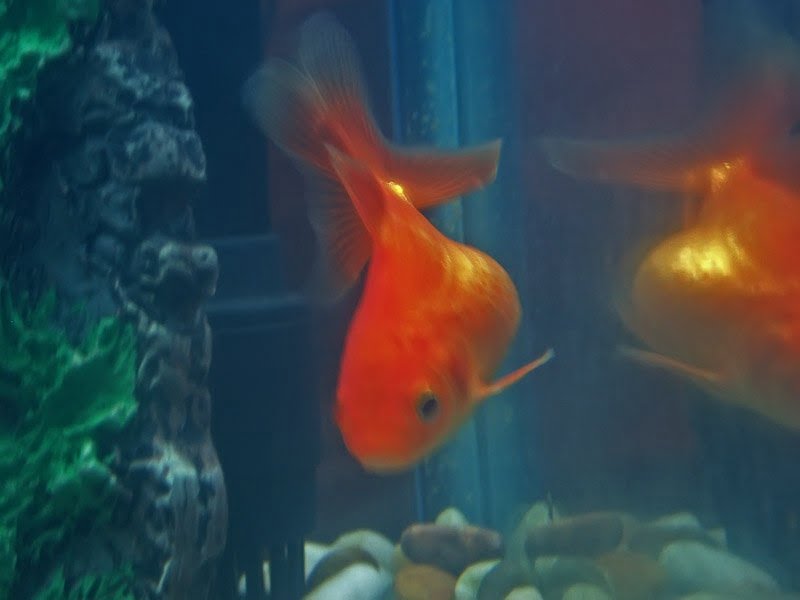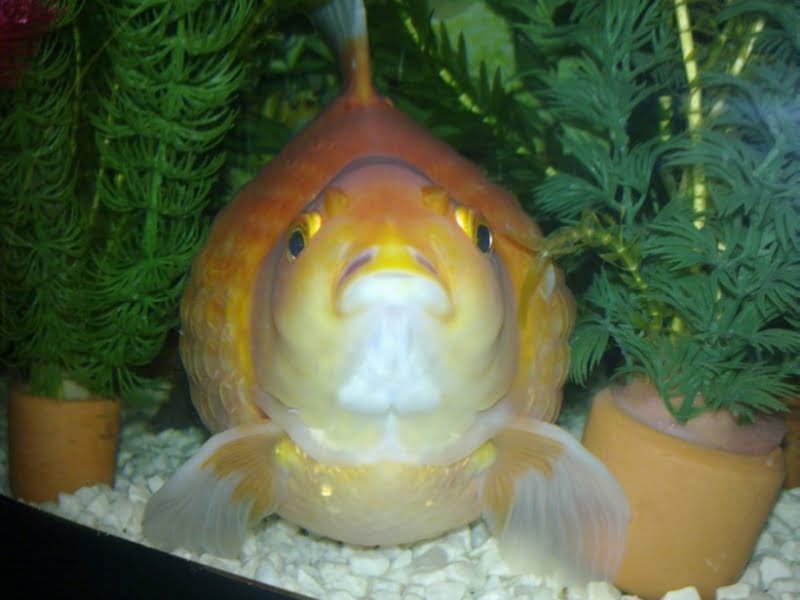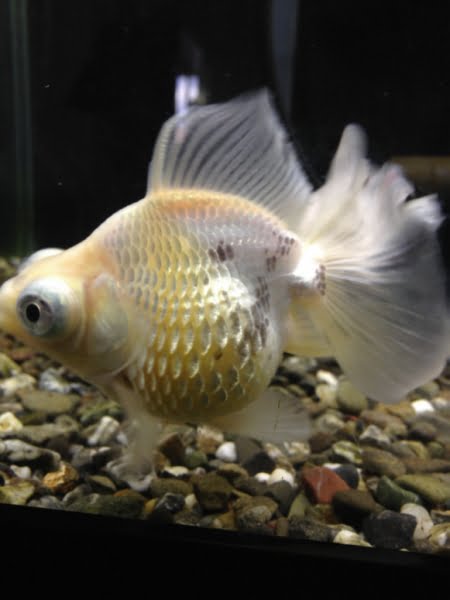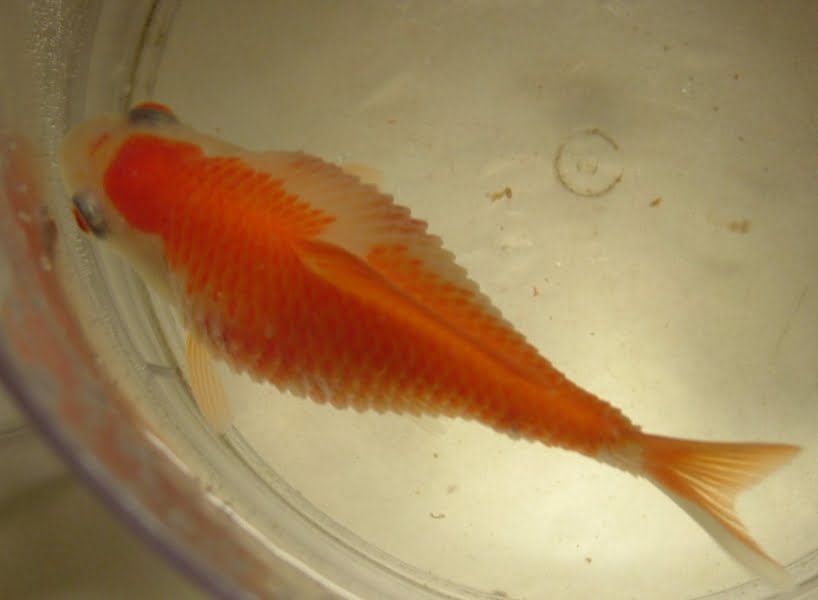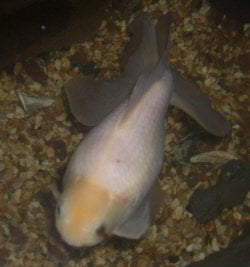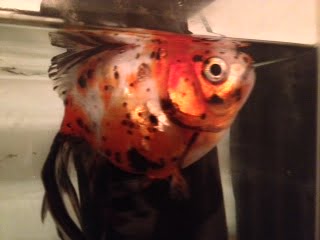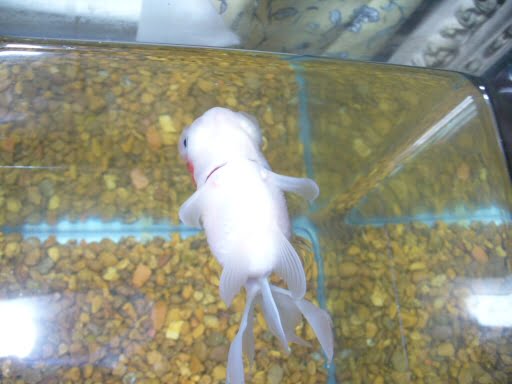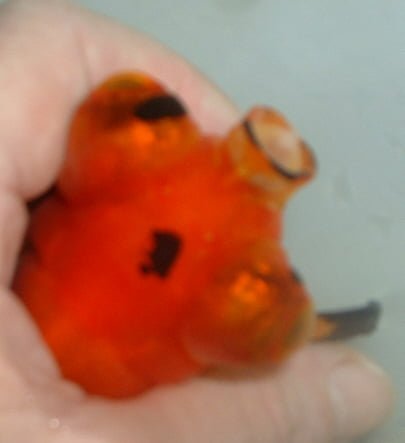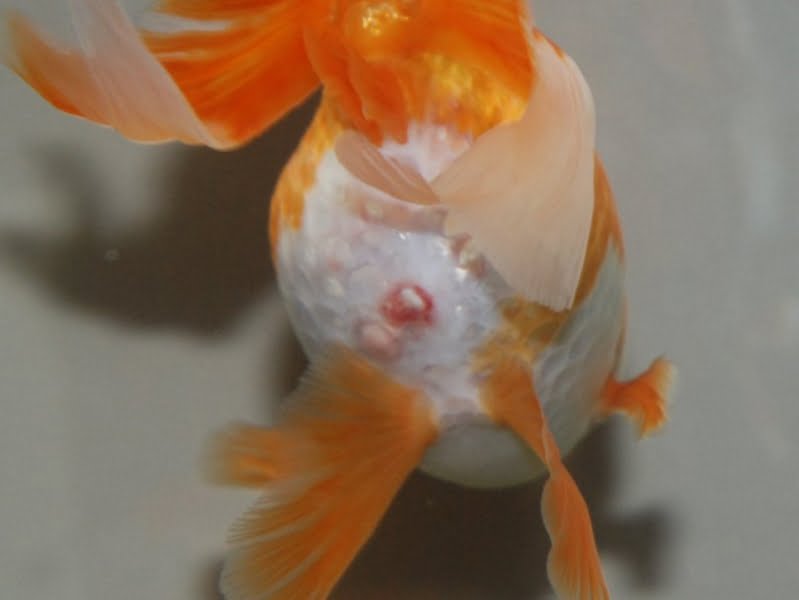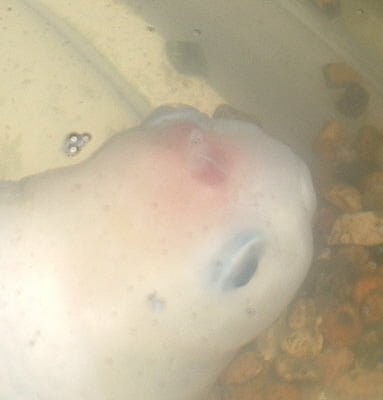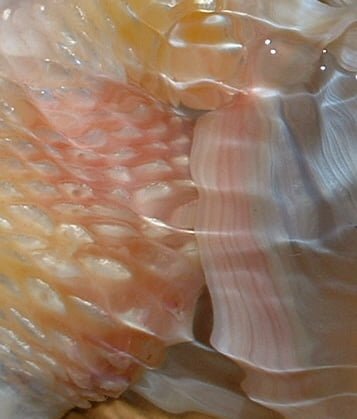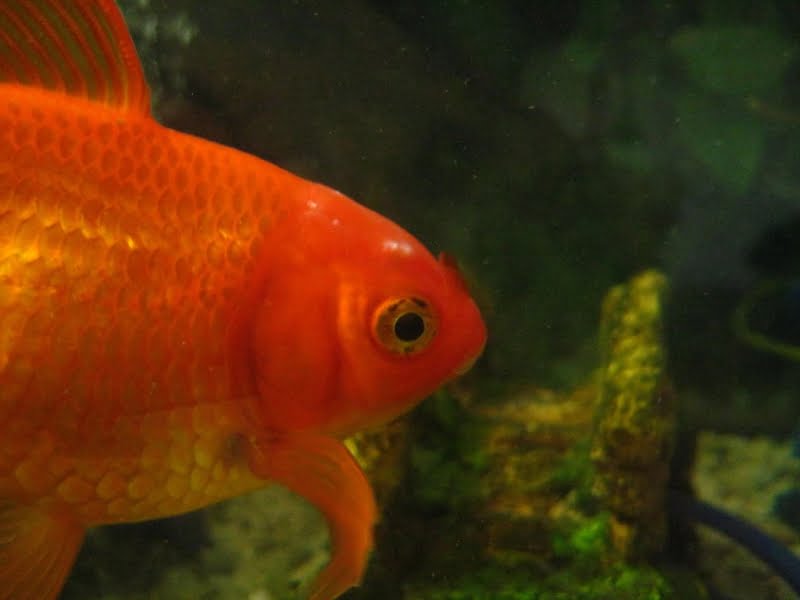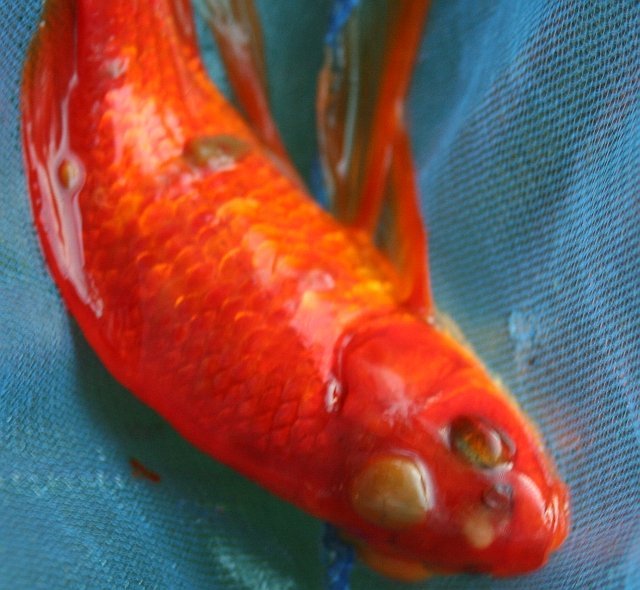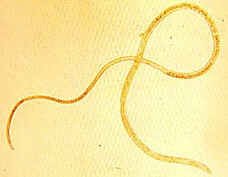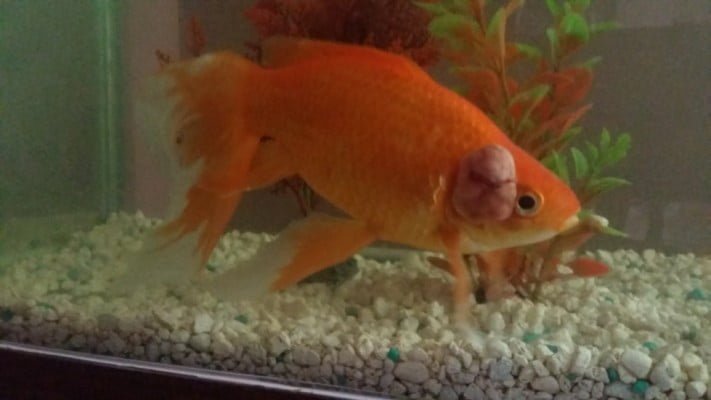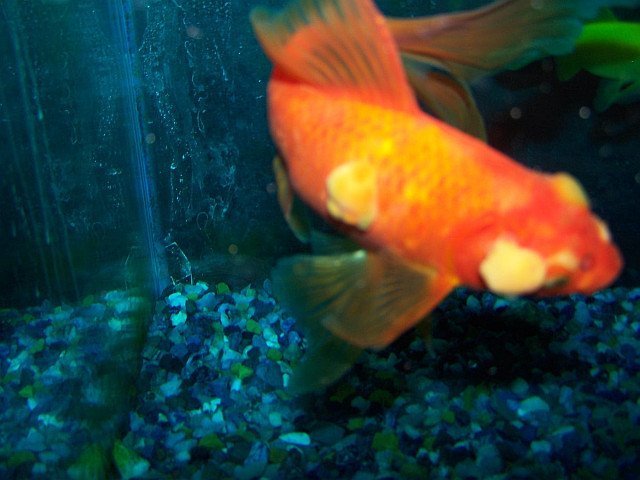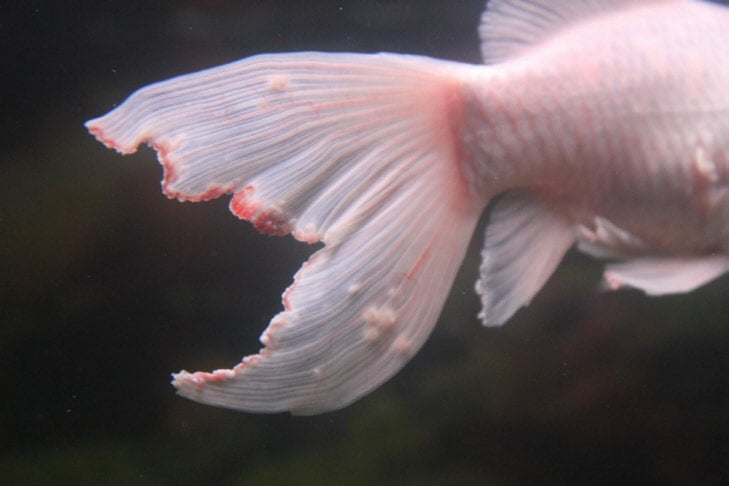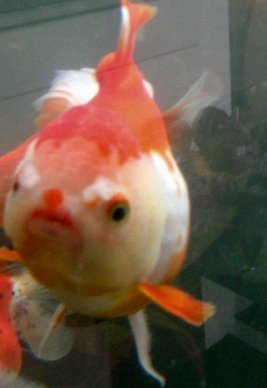Diagnose goldfish symptoms and treat
Diagnose goldfish symptoms and treat by improving water quality and using natural remedies. Tested tried and true, our method of goldfish and Koi keeping brings sick fish back to health
If your fish is in distress, follow this link to the 911 life saving water change before you do anything else
All of the conditions listed below can be effectively treated by using Natural Health Remedies
Anything wrong with your goldfish very likely is related to its environment or care
Study the
10 Steps to Goldfish Koi Keeping
Have you recently medicated your goldfish tank?
If you haven’t already, do not medicate. Typically, in most cases medications do more harm than good, killing the friendly bacteria in your tank or aquarium. If your fish is sick, the water in your fish house could be to blame. Using medications could push it over the edge. With the proper care and nutrition most of these conditions or issues can be conquered naturally as the water’s immune system is raised along with that of the fish
Help your fish by helping yourself to our diagnose and treat section, or create a post in our gfe FORUM blog or contact our HOTLINE
Scroll down to diagnose symptoms and treat by clicking related headings and photos
If you can’t find matching symptoms, post in our forum for assistance, and maybe we can help
-
Ammonia Poisoning
Symptoms: Clamped fins; white marks; black marks; swollen gills
These fish have their fins clamped tight to their bodies in an effort to reduce the
burning sensation caused by ammonia or carbonate mineral burns
To learn more click on the link below
TEST ammonia (zero is the goal)
TEST KH (not to exceed 120 ppm)
Fish that have suffered burns may experience swelling in the gills, reducing their oxygen intake
This previously all orange fish was in water with high ammonia levels, and was severely burned
It’s water conditions were poor, and it had little protective slime coat, leaving it at a higher risk
The black marks are healing burns
_______________________________________________________
-
Nitrite Poisoning
Symptoms: Red streaks in tail fin, spider veining throughout body; spitting food; spasms
TEST nitrites (zero is the goal)
Fish that has suffered nitrite poisoning my have spasms and or spitting food
Click here to learn more Red patches goldfish
Broken blood vessels on body are also symptoms nitrite poisoning
________________________________________________________
-
Nitrate Poisoning
Symptoms: bent or curled positioning, pressed to bottom; bottom sitting; lack of appetite
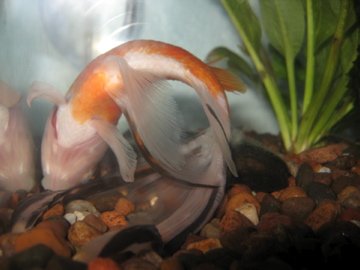
Nitrate poisoning symptoms
This fish’s body is curled due to the effects of nitrates, in the final stages
TEST nitrates (10 to 20 ppm is the goal)
Do not perform a large water change or move fish exhibiting symptoms
Fish that have suffered nitrate poisoning may lose their appetite, may bottom sit, and then
gradually curl to one side as the condition worsens
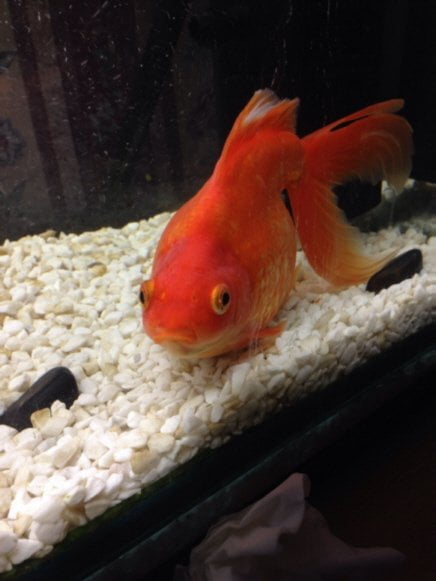
This fish is laying heavily on the bottom because the nitrate levels were reduced too quickly when
a large and sudden water change was performed, causing nitrate shock
To learn more, click on the link below
_________________________________________________________
- Poor general health
The fish in the photo above was weakened from living in water poor in value, and was injured by
a filtering system without a sponge covering the intake. Weak fish often get stuck in places that a
strong fish could easily navigate
Fish in poor water over suffer from multiple related issues
These fish are in water that is high in nitrates and low in oxygen. Their bodies are covered in fungus,
and their fins are clamped because even though the fish house is cycled, ammonia is ever present due to a
low pH. Not long for this world, these poor fish lived and died miserably, their keeper unaware
To learn more, click on the link below
Bacteria friend or foe
__________________________________________________________
- Impacted Eggs
Symptoms: floating at 45 degree angle with nose down; bulge on one or both sides
Females alone or with other females will eventually become impacted. Females develop eggs with
or without males present, but need their help to release eggs
Click here to learn more
Goldfish floating at 45 degree angle
__________________________________________________________
- Organ Failure
Symptoms: bloating; swelling; listless; lack of appetite
The fish in the photo above is experiencing kidney failure; is very mushy to the touch and swollen due to fluid retention
When the liver is compromised, and the organ fails, just like humans, a fish turns yellow; jaundice
The fish in the photo above is experiencing liver failure; jaundice. It’s body is a little too firm to the touch. The raised scales, a sign that the body is overheating, in this case by fever, indicates infection is setting in. The black spotting indicates the fish was recently poisoned by ammonia or a high KH. The owner added medicinal antibiotics to the tank, which broke the cycle, causing ammonia levels to spike, which poisoned the fish
Click here to learn more Goldfish Bloated
___________________________________________________________
- Raised scales
The fish in the photo above was in water that was too warm, causing heat stroke. The fish lifts its scales
in an effort to cool its body. Fish also lift their scales when fever is present
Click here to learn more Goldfish raised scales
___________________________________________________________
- Oxygen Deprivation
Symptoms: bleeding eye, bulging eye, gasping, gasping at surface; reddening around gills
This 2 yr old fantail goldfish in the photo above has suffered from oxygen deprivation; pH crash
Notice the slight bleeding from the eye in the fish above? Other symptoms are reddening gills, gasping, gasping at the surface
This fish is hanging around the surface, periodically gasping because there’s little to no oxygen in the water
The higher the fish rest in a body of water the lower the oxygen levels
Most of the issues we see here at goldfish emergency are low oxygen levels related
Most goldfish will live and die in water that is low in oxygen
Click here to learn more about Oxygen deprivation
____________________________________________________________
- Floating or Sinking Issues
Symptoms: overly buoyant; bouncing; floating uncontrollably; floating at the surface and upside down
eats, but cannot hove on the bottom without great effort; eats, but cannot lift off the bottom without great effort
The fish in the photo above is living in an unhealthy environment, but being fed improperly has caused the floating issue. Goldfish with floating issues are unable to feed, and live in fear, unable to stay on the bottom where they feel safe.
Most floating issues are caused from an impacted tract, trapping gas in the swim bladder
Goldfish with sinking issues are unable to lift, having no gas in their swim bladder
Floating Issues
Sinking issues
The fish in the photo above lays helpless on the bottom due to a sinking issue
Click here to learn more Goldfish floating and sinking issues
_____________________________________________________________
- Lockjaw (Tetanus)
Symptoms: Mouth locked open or closed; cannot swallow; muscle spasms; raised scales
Tetanus (lockjaw) symptoms
The bacteria, Tetanus produces a toxin that paralyzes muscles, starting with the face until it eventually
attacks the heart muscle. Depending on the timing, a fish may have it’s jaws locked open or closed
Treatable if caught in the early stages
Click here to learn more Lockjaw goldfish Koi
_____________________________________________________________
- Bad Bacteria Infection
Symptoms: Shredded fins; missing scales; white cloud in water; abscesses; fungus
Missing scales due to harmful bacteria in water or low general hardness, or even the two combined
The fish in the photo above has abscesses; the source being sand used as substrate, which
harbors bad bacteria. Abscesses are often caused by harmful bacteria in sand or gravel, where the fish rest. Bad bacteria are
everywhere, even in a healthy environment, just waiting for an invitation
____________________________________________________________________
- Hole in the HeadSymptoms: redness top of head, top of head caves in, hole in top of head
The fish in the photo below eventually died from a bacterial infection commonly referred to as ‘hole in the head’
Starting as a red spot, it gradually grows into an abscess. The abscess begins to look concave until it finally
becomes a hole, infection eating its way to the very brain of the fish. This infection begins internally; a fatal
side effect of serious ailments, and is more common in geriatric fish
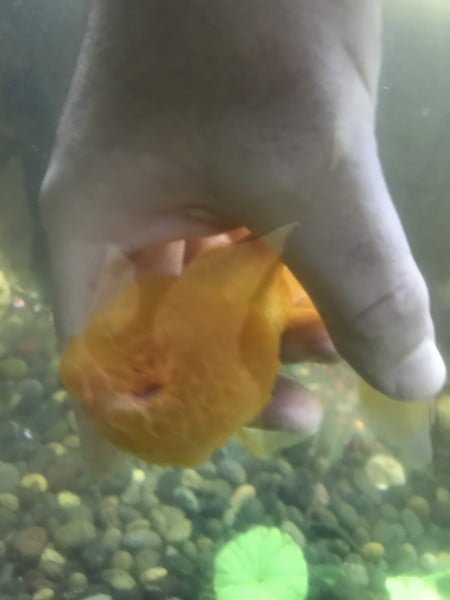
The Oranda in the photo above is also suffering from hole in the head. This little guy proved everyone wrong by making a miraculous recovery, although as you can see from the photo below, the wen has been damaged
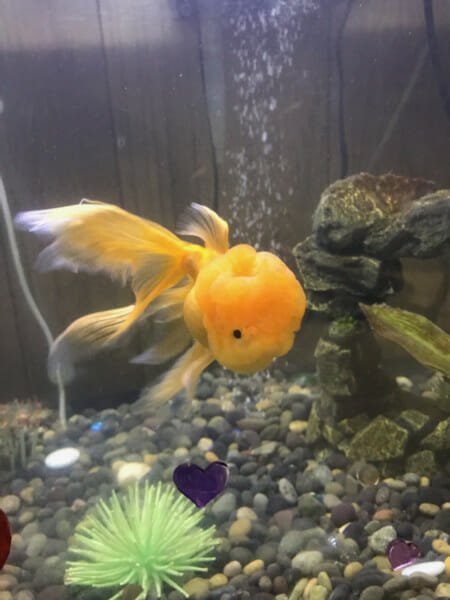
Click here to learn more Bacteria Friend or Foe
______________________________________________________________
- Blood Poisoning (Septicemia)
Symptoms: Bleeding under the skin; raised scales
The causes of blood poisoning are many, and in most individual cases the cause will remain unknown
Most common causes are slowing organs, damaged organs, a tear in the tract or internal infection
Click here to learn more Goldfish has red blotches
Septicemia
_______________________________________________________________
- External Parasite Infection
Symptoms: Darting; rubbing on substrate or other objects in the environment; visual parasites
The most common external parasites are ich, as seen in the photo above, flukes and anchor worms. Ich is probably the most easily overlooked parasite. The tiny white dots can be found on any part of the body. Flukes, as seen in the photo below related to leaches are more like blobs, and not as common, and the anchor worms are look more like hairs that look to be attached to or growing out of the body
Invasive species, known as black spot parasite (see below) is found on fish in the wild, and typically in unhealthy, although natural bodies of water. This parasite, related to the leech, can hitch a ride on fish or plants

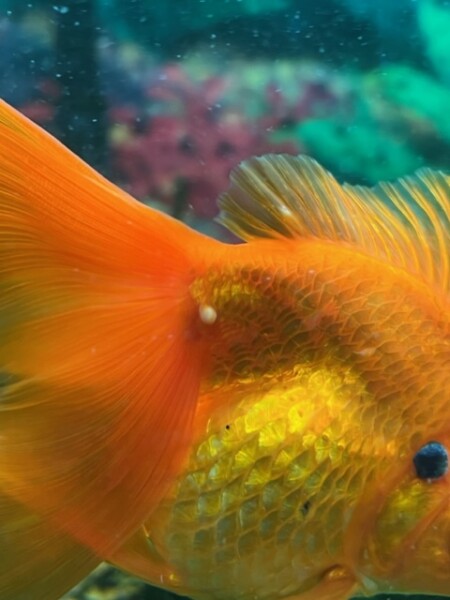
_________________________________________________________
- Internal Parasites
Symptoms: Concave looking, but has appetite and is well fed
Common parasites are easily eliminated with natural treatments
Parasites thrive in water low in value
Click here to learn more Parasites goldfish Koi
Internal worms are uncommon in the goldfish industry due to heavy use of medicinal chemicals
Most internal parasites are easily destroyed naturally without destroying the immune system in the tract
____________________________________________________
- External Growths
Symptoms: warts; tumors; growths that form on the external part of the body
This fish above has been ruptured by a sharp object, causing a tumor looking mass to form over the injury. The mass is internal muscle tissue that has been forced through the opening by pressure in the body
Some tumors are cancerous. Most cancerous tumors are internal, and impossible to diagnose. Warts are the most common tumors found on goldfish. They’re harmless unless left untreated, and can cover the gills, reducing oxygen intake. Warts are easily destroyed using natural remedies
Warts are caused by a virus, easily transferred from human to fish or vice versa
Click here to learn more Goldfish has growth
________________________________________________________________
- Bubble Disease
Symptoms: Tumor looking lumps that most commonly form on the upper side of the body
If you look closely to the left of the base of the dorsal fin, you’ll see a strange looking lump caused by supersaturated gases. These lumps are easy to distinguish from warts or tumors because the skin is normal looking
Click here to learn more Goldfish has lump or tumor
___________________________________________________________
Diagnose symptoms and treat
Every goldfish tank, aquarium or pond has one goldfish that is more sensitive than the others. A goldfish sensitive to temperatures ranging on the higher side of the comfort zone may have been kept in too high of water temperatures at one time in its past. Goldfish that have suffered ammonia or nitrite during the nitrogen cycle may become sensitive to these toxins. Where one goldfish may ignore a spike in nitrites, the more delicate one may exhibit immediate symptoms. A goldfish that has suffered too high of nitrate levels may become super sensitive to the toxin, having little or no tolerance
A goldfish that has suffered and survived a pH crash may become sensitive to low levels in the future
Some goldfish breeders may be guilty of over salting and over medicating to reduce risk of infection of disease. These goldfish may be super sensitive to salt or medicines
If your fish is sick, follow our instructions to the letter and as quickly as possible. Our recommendations may require spending a little money, and will definitely require hard work, and even then the fish may die, but most of the fish you see above made a full recovery to do the fast actions taken by the fish keeper
If you’ve viewed the photos of sick and infected fish above, you may have noticed some of these fish have more than one symptom; a common occurrence. If a fish is suffering from nitrate poisoning there’s a good chance there’s not enough water being exchanged, which leads to harmful bacteria infection. Where you find harmful bacteria, you find low oxygen levels and too warm of water conditions. Nitrates are more dangerous in water that is warm and low in oxygen. This is because the toxin robs the blood of oxygen, and goldfish use more oxygen in warmer water. Learn everything you can about the environment your goldfish and Koi need to thrive. All of the issues above could have been prevented, if only the goldfish keeper had known
The care and the remedies recommended on these pages may or may not cure your fish
Diagnose symptoms and treat
Goldfish emergency wishes to thank our members for contributing photos
All rights reserved
Author: Brenda Rand
